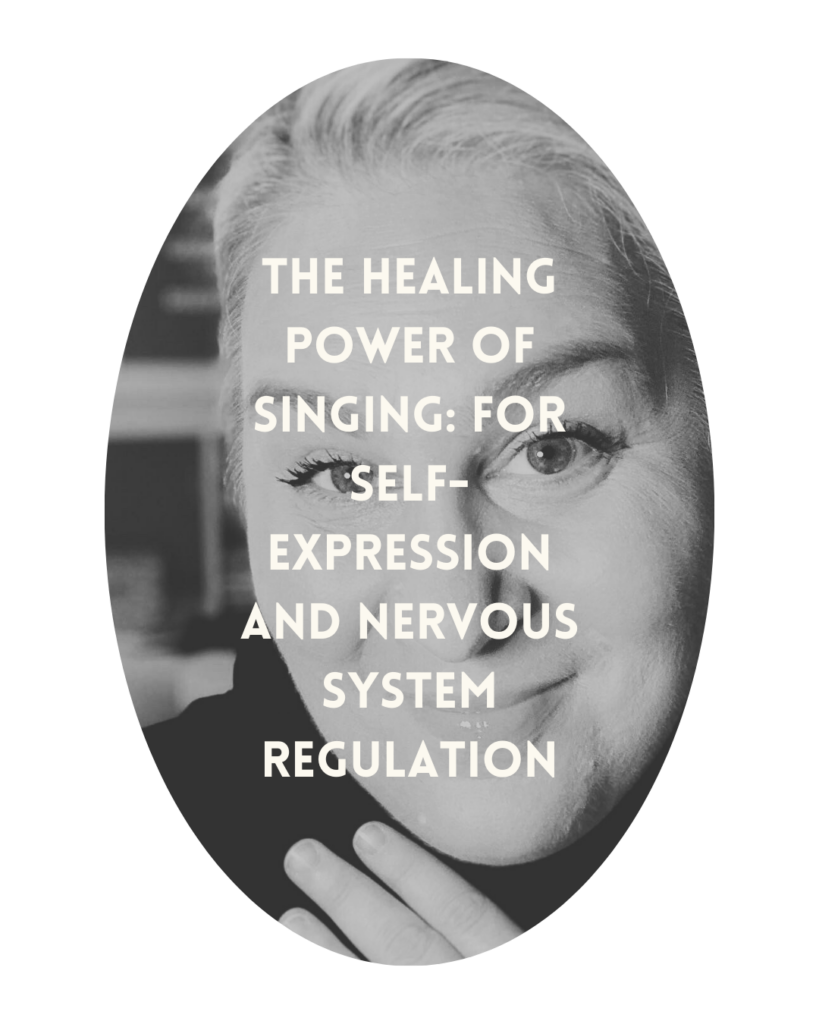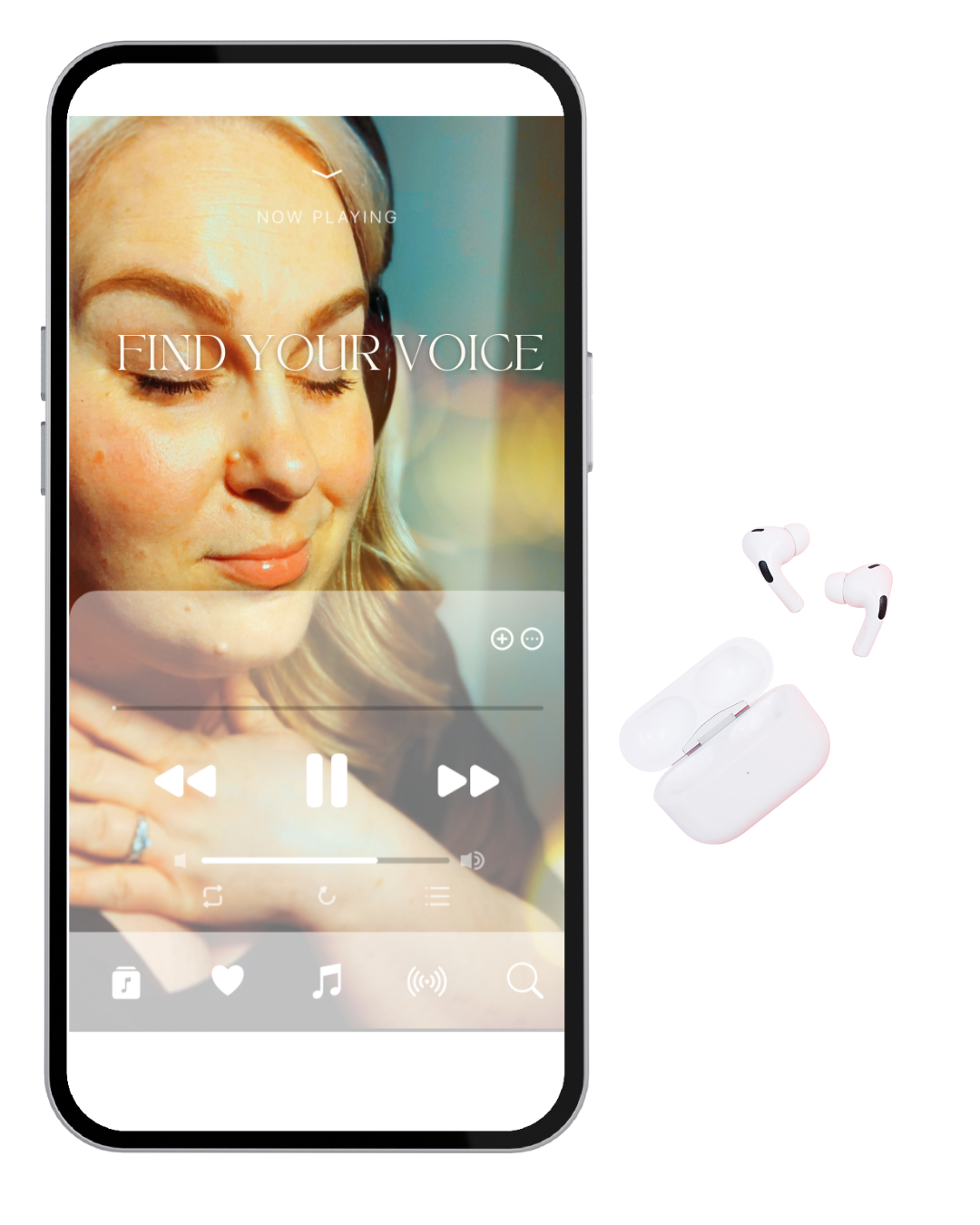© - Content and images in this blog are copyright Elise Besler of EB Voice Empowerment, unless stated otherwise. Feel free to repost or share images for non-commercial purpose, but please make sure to link back to this website and its original post.
℗ - We do not store any information about your visit to our website other than for analytics and optimization for content and reading experience through the use of cookies.
℅ - Our site does at times contain paid advertisements, sponsored content, and/or affiliate links.
Reader Etiquette
I'm your go-to expert for helping to ditch the fear and own your voice. Whether you’re speaking, singing, or setting boundaries, I help you go beyond technique -rewiring your nervous system so full expression feels natural, effortless, and so you.
Hi! I'm Elise Besler - Voice Coach & Somatic practitioner
February 13, 2025

Why Singing is More Than Just Music
Singing is one of the most powerful tools for self-expression and nervous system regulation. Whether you’re belting out a tune in the shower or humming softly to yourself, singing has the ability to calm your mind, regulate your emotions, and unlock your authentic voice.
In this blog post, we’ll explore the scientific and emotional benefits of singing, how it supports nervous system health, and ways you can incorporate singing into your daily routine to enhance confidence, resilience, and emotional expression.
The Science Behind Singing and Nervous System Regulation
Your nervous system plays a key role in how you process stress, emotions, and self-expression. Singing directly impacts the vagus nerve, which is responsible for activating the parasympathetic nervous system ~ the part of your body that promotes relaxation and recovery.
How Singing Supports Nervous System Regulation:




Singing as a Tool for Self-Expression
Many people struggle with finding their voice, whether it’s in conversations, public speaking, or setting boundaries. Singing is a playful and powerful way to practice expressing yourself without fear or overthinking.
Ways Singing Enhances Self-Expression:




Practical Ways to Use Singing for Nervous System Regulation
If you’re new to singing as a self-care practice, start small and experiment with different approaches.
1. Humming for Calmness
Humming is one of the easiest ways to activate the vagus nerve. Try humming a simple melody for 1-2 minutes and notice how your body responds.
2. Singing Deep Breaths
Instead of just taking deep breaths, try inhaling slowly and singing a long, sustained note on the exhale. This promotes relaxation and breath control.
3. Chanting or Mantras
Repeating sounds like “Om” or “Ah” can create vibrations that calm the nervous system. This is why chanting is used in meditation and yoga practices.
4. Free Vocal Expression
Set a timer for 5 minutes and allow yourself to make any sounds that feel good ~ whether it’s singing, sighing, or toning. This can release stored tension and free your voice.
5. Sing Along to Music That Moves You
Pick songs that match your emotional state. Sing high-energy songs to boost your mood or slower, soothing songs to calm your body.
Long-Term Benefits of Singing for Self-Regulation and Expression
When practiced regularly, singing can help you: 




Final Thoughts
Singing is one of the most accessible and effective tools for nervous system regulation and self-expression. Whether you hum softly, chant in meditation, or sing your heart out in the car, your voice is meant to be heard.
— If you’ve ever struggled to speak up, felt your voice shake in high-stakes moments, or questioned if your words truly mattered, this practice is for you! —
Click HERE for immediate access to the FREE “Find Your Voice” Guided Audio Training.
Take 11 minutes to activate the power of your voice with this guided practice. Includes: Grounding, breath-work and voice-work exercises to help you regulate your nervous system and build a confident voice.

Leave a Reply Cancel reply
Grab
THE "Find YOUR VOICE" AUDIO TRAINING
Welcome, Friend! Around here, we believe that embodiment is sacred, and that every voice deserves to take up space.
This is a space rooted in anti-racism, body liberation, queer-affirming practices, and a commitment to trauma-aware, nervous system-informed growth.